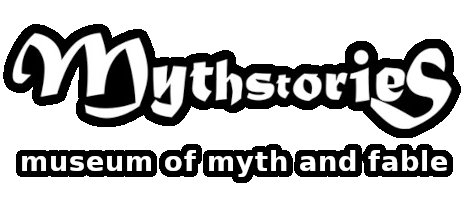This exhibit dates back to 1990 when Artist in Residence Dez Quarréll was working as a fine artist and delivering arts in education workshops through story. Dez worked with a class of year 5 students at Coleham Primary School in Shrewsbury during the school’s Arts Week. In one full morning session held at the nearby English Bridge Workshop the children painted scenery, made costumes, masks and props and acted tableau telling the Celtic legend that they’d heard for the first time at the start of the session.
From 1999 their photo-story was displayed in the Ancient Myths Hall at the Carnarvon Lane, Shrewsbury Mythstories museum alongside common names of native British herbs written like grasses on the wall of the gallery.

In 2001 when Mythstories museum moved to The Morgan Library in Wem the photo story was displayed inset into a trellis of photographs of those same herbs.
The Secrets of Herbs, a Celtic Legend
Long, long ago on the lands where we now live dwelt a tribe of gods called the Tuatha Dé Danann. Their leader and king was indeed a great man, god of life and growth, he was named Nuada.

Nuada was a great and noble warrior and fearsome in battle. He led his tribe to a great victory in the first battle of Mag-Tured against the evil tribe of the Fomorian Sreng. However, this victory was not won without cost for Nuada, who paid dearly with the loss of his hand.
Now it is written in the ancient laws of the Celtic people that no-one may rule over his tribe if he has any bodily blemish, so would Nuada stand down? Many believed that without this noble warrior to lead them the Tuatha Dé Danann would surely suffer.

So Diancecht, god of medicine and Creidne, the blacksmith were set the task of making a new hand for Nuada. The two proud gods set to work to forge a marvellous hand worthy of their king’s power. After many days of hard labour the two gods presented Nuada with his new hand. All the tribe marvelled as they saw Nuada place on his wrist a beautiful solid silver hand. Diancecht and Creidne accepted the tribe’s praises and Nuada’s gratitude and were truly pleased with the fruits of their labours.

As time passed, however, Nuada became displeased with his new hand. Being made of silver the hand was both heavy and unwieldy. The metal fingers could not bend to pick things up or grasp a sword. There was no feeling or reflex in the silver finger tips. To Nuada the hand became just dead metal.

Nuada went secretly to Diancecht’s son Miach who was skilled in the ways of magic and asked him for his help, in return he promised him rich rewards. Miach smote off the silver hand and using all his powers restored Nuada’s real flesh and blood hand.
When Diancecht saw what his son had done for the ungrateful king he was greatly angered. Being a proud god it was not only the wrong which angered him, but he was also jealous of his son’s superior powers.

In his rage Diancecht rushed at his son and took his life from him. As Miach died his magic was undone and Nuada’s hand withered. The tribe turned on Nuada and threw him out of their realm replacing him as king with his son, Bres.

Miach was buried but his magic was not yet finished, on his grave grew 365 herbs and Airmed, his sorrowing sister came to the grave and arranged all these herbs according to their medicinal uses.

Diancecht would not let the secrets of his healing powers be stolen so easily though. He destroyed Airmed’s arrangement so no-one would share in his power and the herbs would keep their secret curative powers from the people.

Nuada sought revenge and went to join the Fomorian Sreng to lead them against the Tuatha Dé Danann in the second battle of Mag-Tured. His challenge was soon overthrown mainly because of the power of Diancecht who brought mortally wounded Tuatha Dé Danann warriors back to life by bathing them in his healing well of magic herbal waters.





